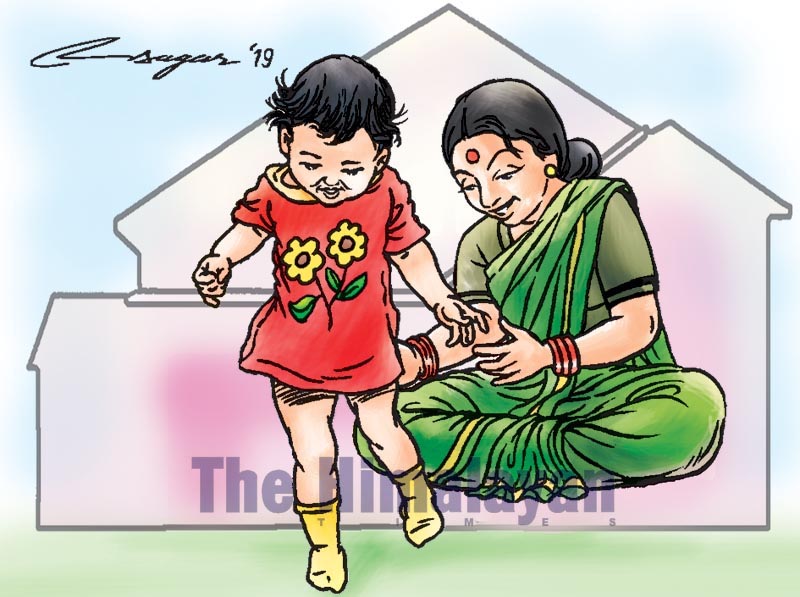Being a “happy homemaker”: For the well-being of society
A greater theme of women empowerment is to give her the freedom to be productive inside and outside her home, not pressurising her to a point that she would suffer a burnout in her important roles
The role of women in society has been varying throughout the time frame. Earlier, women stood as respectable makers of the home - serving as a wife, mother and mother-in-law. They found their values and respect within their positions inside home. However, in recent times, an extra role of women as a working member of society has been added. In fact, women have reached high positions, which once were considered too far out for them. Women have been presidents and prime ministers of nations, respectable doctors, lawyers, professors, analysts and everything that used to be solely under male ordinance.
While it is impressive that women have been earning and bearing the financial burden of the family along with their responsibilities as a wife and mother, this fact that women in full-time employment is an added perk besides being a homemaker is a highly ignored truth. In other words, women are being bullied by the society for fulfilling their actual and core role - a homemaker. We see a lot of examples these days that if an educated married woman is not working outside and serving her husband and rearing her kids, she is highly looked down upon. She attracts terms like ‘non-working’ and ‘husband-dependent’ despite her noble, full-time job as somebody who is ‘building’ a home, community and ‘uplifting’ individuals like her husband and kids.
Sunila has been working in a school as a full-time teacher since the last six years. Four years ago, she got married, and soon after she became a mom. Being married to someone who is constantly based outside the valley and living all by themselves in a nuclear family was not an easy task for her. She made up her mind to be a stay-at-home mom and take care of her newborn until the child entered school. However, the opposition she faced from her circle of friends and family members to keep working made her reluctant to do so. She got programmed in her mind that these few years of her life are her productive years, and she should not tamper with her career and so on. Hence, she continued working for a not-so-sophisticated income just for the sake of her ‘career’, leaving her eight-month-old in a day care centre. The real problem appeared when the child would fall ill and she was forced to take several days off. All the mental stress, moments of loneliness and burnout involved behind the scene are a whole new story.
Babita has been a full-time homemaker since the time she got married. She has raised a seven- year-old and looks after the academic, social and moral needs of her child, being an educated woman. However, she has not stopped being criticised and tormented with words like ‘unmotivated’ and ‘comfort-loving’ by the people in her circle. She explains how words like those hit her self-esteem and sometimes feel like going back to work, but restrains herself because she is the only one who can identify the ways she is investing upon her child.
As commercial as today’s world has become, practically everything is weighed in terms of monetary value. It is important, however, to acknowledge that during the generative phase of adulthood, parents must address and invest in the physical, mental, social, emotional and cognitive needs of their child. Even a mere presence of one of the parents with them during the growing years can have a lasting positive impact on the proper development of the child. But being overindulgent in long duty hours and being stressed out after the working hours, not being able to invest time and words in the child can lead to a lack of belongingness and love in him/her.
The result is evident. Emotional issues like anxiety and depression, social issues like rebellion, degrading sense of respect and identity crises are at an alarmingly higher level among today’s youth, more than ever in history. If someone asks what a full-time homemaker can do, we can show them that she actually builds up an individual. Not to forget that an individual is the building block of society and nation. This simple fact, not being displayed in many societies today has caused them to be doomed.
Does it mean that women should not work outside at all? Of course not! She should, but not at the cost of the well-being of her family, for whom she is like a cornerstone. Women in ancient days had societal roles. But their societal roles were not glorified over their roles as a wife and mother. Unlike today, their identity was not based on what and how they were performing outside or how much they were earning. A greater theme of women empowerment is to give her the freedom to be productive inside and outside her home, not pressurising her to a point that she would suffer a burnout in her important roles that are instrumental for the well-being of society.
I know a lot of moms who regret their decisions to be overindulgent in work that their children couldn’t achieve their potential in emotional, mental, cognitive and social grounds. On the contrary, there are those happy moms who find fulfillment in shaping their children as stable, honoured and fruitful members of society. That must be an awesome feeling! Hats off to all the women who are working hard to address the financial needs of their family! Also hats off to all the wonderful women who have made up their minds to prepare and nurture the family being a ‘Happy Homemaker.’
Ghimire is an educator






